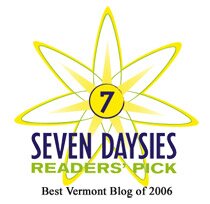The Berkman Center’s Martin Luther King Day Conference: Sunlight Foundation Makes The A-Team Look Weak and Pathetic
The Junkies
I am a Left-wing political junkie, and at this point in my life I’m comfortable enough with the ravages of my addiction: the compulsive newspaper reading, the post-cycle depression, the endless handicapping of a Presidential election still nearly two years away.
 Not to mention the blogging, a hideous compulsion of another order entirely.
Not to mention the blogging, a hideous compulsion of another order entirely.
And by and large I’ve tended to herd with my own, as a way of normalizing my obsessions. We get into endless arguments about percentages, third-party challenges and front-loaded primaries.
In a crowd of junkies, I will appear to be a healthy man. So I’d never had much contact with other types, including political geeks, until this past weekend.
And apparently my life will never be the same again. Because the geeks have changed me. Forever.
The Geeks
Political Geeks fetishize political data, see, and the need to manipulate that data results, over time, in a powerful software jones that can only be satisfied through full-scale innovation.
True political geeks will use Google to perform a task — the way you might use a credit card to scrape ice from your windshield if you had no other choice — but they’d much prefer to invent an utterly new way to make the data do exactly what they want it to do.
If political junkies dream of controlling voters and elected officials, political geeks dream of controlling the data concerning the voters and elected officials. Pollsters are one sort of geek, of course, and I was familiar enough with pollsters and their ways.
But it turns out that there is an entire species of which I was unaware: the transparency geek.
 Transparency geeks begin from a seemingly simple proposition: political information — of any and all sorts — must be free. If it is not, then it must be busted out of whatever institutional lock-up currently confines it.
Transparency geeks begin from a seemingly simple proposition: political information — of any and all sorts — must be free. If it is not, then it must be busted out of whatever institutional lock-up currently confines it.
Once free, the information will then rat out its captors — expose potential corruption, in other words.
It’s pretty much the plot of every A-Team episode from 1983-1987.
Except, you know, with software instead of Mr. T.
The Sunlight Foundation:
Helping Geeks Arm Junkies
The mission of the Sunlight Foundation, according to their website, is to “reduce corruption, ensure greater transparency and accountability by government, and foster public trust in the vital institutions of democracy. We are unique,” they go on to add, “in that technology and the power of the Internet are at the core of every one of our efforts.”
No joke.
Under National Director Zephyr Teachout, Sunlight has spent the last year engaged in what can only be called a landmark experiment in geek aggregation — bringing together as many transparency geeks as they could to create a clearinghouse for new technologies aimed at making political information both free and user-friendly.
 Well, this past weekend Sunlight decided to show off their collection.
Well, this past weekend Sunlight decided to show off their collection.
It was Martin Luther King day, and it was a long Martin Luther King day: from 8:30 am to 6 pm, we watched one stunning demonstration after another.
In fact, for a good part of that time, we speed-geeked: seven minutes watching how a new searchable database opened up a previously closed field of political information, and then BAM! on to the next database.
Case in point: Maplight.org.
Maplight illuminates the connections between money and politics, in utterly simple ways, by tying money to actual votes on actual bills. For the last year, the site has been limited to California data, but by the end of the year, you’ll be able to search Congressional information from St. Albans to San Jose.
OpenSecrets.org tracks everything being exchanged by government and private interests, including the travel of individual legislators; Fedspending.org breaks down federal spending by Grants or Contracts. And lest corrupt lawmakers seek to evade all of the above by funneling money to relatives, The Congressional Family Business Project knows who’s got family on the payroll.
And then, my personal favorite: Metavid. Mash up Google, YouTube and C-Span, and you get Metavid: a searchable archive of C-Span clips that you can easily embed into your blog or web page.
Okay, you pose a good question: who in their right mind wants to search C-Span, which is, after all, a camera pointed at lawmakers droning on hour after hour after hour about nothing in particular?
Answer: junkies.
The Beauty Part
And here’s the beauty part.
Let’s say you’re an enterprising citizen, and you decide to use several of the tools mentioned above in concert with one another.
Working with your cell phone and a spare half an hour, it is now possible to do the following: 1) create a timeline of a bill moving through the House or Senate; 2) create another matching timeline of a given legislator’s actions on that bill; 3) create a third timeline tracking contributions from special interests looking to influence the bill; and 4) retrieve C-Span clips of the legislator in question speaking against the bill one day, and for it the next.
What have you got? A vivid, compelling, nearly three-dimensional reconstruction of a quid pro quo.
Maybe not enough to get a conviction in a court of law — given the intentionally high bar set in corruption cases — but more than enough to make the dirty lawmaker’s next election a grueling exercise in accountability.
And there’s no smack quite like that, I can assure you.
[This piece ran first in The Vermont Guardian.]